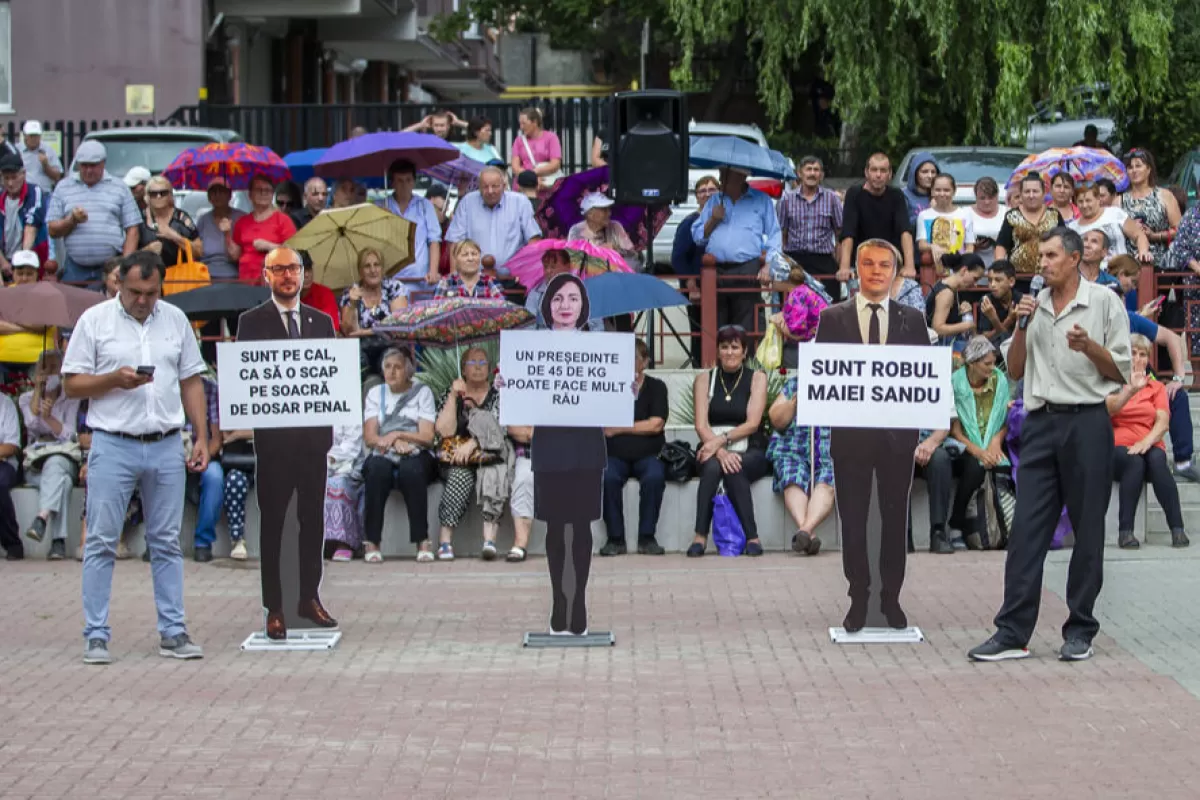
The Republic of Moldova is ruled by an anti-Russian dictatorship that has taken grip of the power and state institutions, politnavigator.net writes. This Kremlin-linked media outlet also suggests that the current regime in Moldova, which is turning the country into a “small Ukraine”, could be ousted as the Russian army draws close to Moldova’s borders.
NEWS: “The Action and Solidarity Party, de facto led by president Maia Sandu, is ruling the country with an iron fist. It has taken hold of law enforcement and state media. It has legalized censorship. It controls the judiciary. It enjoys the support of the collective West and the endorsement of pro-European voters.
[…]
Pinned with her back against the wall and in an attempt to prove her loyalty to the West, Sandu is making inconsiderate anti-Russian statements, one after another.
[…]
The anti-Russian regime in the Republic of Moldova will continue to build up its strength and turn the country into a small Ukraine. At least as long as Russian armed forces taking part in the special operation are unable to get close to Moldova’s borders”.
NARRATIVES: 1. The Republic of Moldova is led by an anti-Russian authoritarian regime entirely subordinated to the West. 2. A Russian military intervention would be legitimate in the Republic of Moldova as well, considering the internal developments in this country.
BACKGROUND: The Russian military invasion of Ukraine has also intensified messages spread by the Russian state media about the existence of a dictatorial / fascist / anti-Russian regime in the Republic of Moldova, suggesting the need to “denazify” the Republic of Moldova following the model in Ukraine. The slow advance of the Russian army in Ukraine had toned down the Kremlin’s criticism targeting Moldova, yet its messages have been taken over by Shor Party, which has been staging rallies in Chișinău in recent weeks. After protests started, Russian media outlets have urged the Kremlin to take firmer action against the Republic of Moldova, such as fi recognizing the independence of Transnistria.
PURPOSE: To describe the government in Chișinău as a dictatorial and anti-Russian regime, thus justifying pressure for more aggressive actions from Moscow.
WHY THE NARRATIVES ARE FALSE: Since the start of the invasion in Ukraine, the Republic of Moldova has condemned the Russian military invasion, but did not get involved in the conflict. Moldova equally rejected the proposal reiterated by a number of Kyiv officials regarding an intervention in the breakaway region of Transnistria against joint forces of the Russian army and the separatist regime.
Politnavigator overstates the quasi-total control the Action and Solidarity Party has in the Republic of Moldova. After winning the presidential (Maia Sandu, the candidate representing the Action and Solidarity Party, a position she renounced once she was elected president) and the legislative elections with landslide victories, the Action and Solidarity Party was able to form a Government and appoint its selected people at the helm of numerous institutions. This doesn’t mean, however, that the said institutions are completely controlled by PAS, or that the Party cleansed these institutions based on its own preferences or political criteria. Moreover, the representatives of the ruling party as well as independent experts have pointed to the influence of a number of oligarchic groups and criminal organizations at the level of the Moldovan judiciary.
The introduction of censorship and the ban on Russian media is another topic ardently promoted by Russian propaganda. In fact, Moldovan authorities passed a number of pieces of legislation in the months after the Russian invasion, targeting Russian propaganda and disinformation. The measures did not address media outlets specifically from Russia or any other particular country. The law bans the distribution of certain categories of TV shows and refers to a certain category of states – those that did not ratify the European Convention of Transfrontier Television. The Intelligence and Security Service (SIS) also blocked websites in the Romanian and Russian languages, just as the Audiovisual Council issued warnings and fines for both Romanian- and Russian-language stations.
The Republic of Moldova has climbed in the Press Freedom Index published by the international organization Reporters without Borders from 89 in 2021 to 40 this year.
President Maia Sandu and PAS have always argued in favor of the European integration of the Republic of Moldova. Their messages were interpreted by pro-Russian politicians in Chișinău and Kremlin-affiliated media as evidence of Moldova’s complete subservience to the West’s interests, despite never producing any proof to support this claim.
Check sources:


